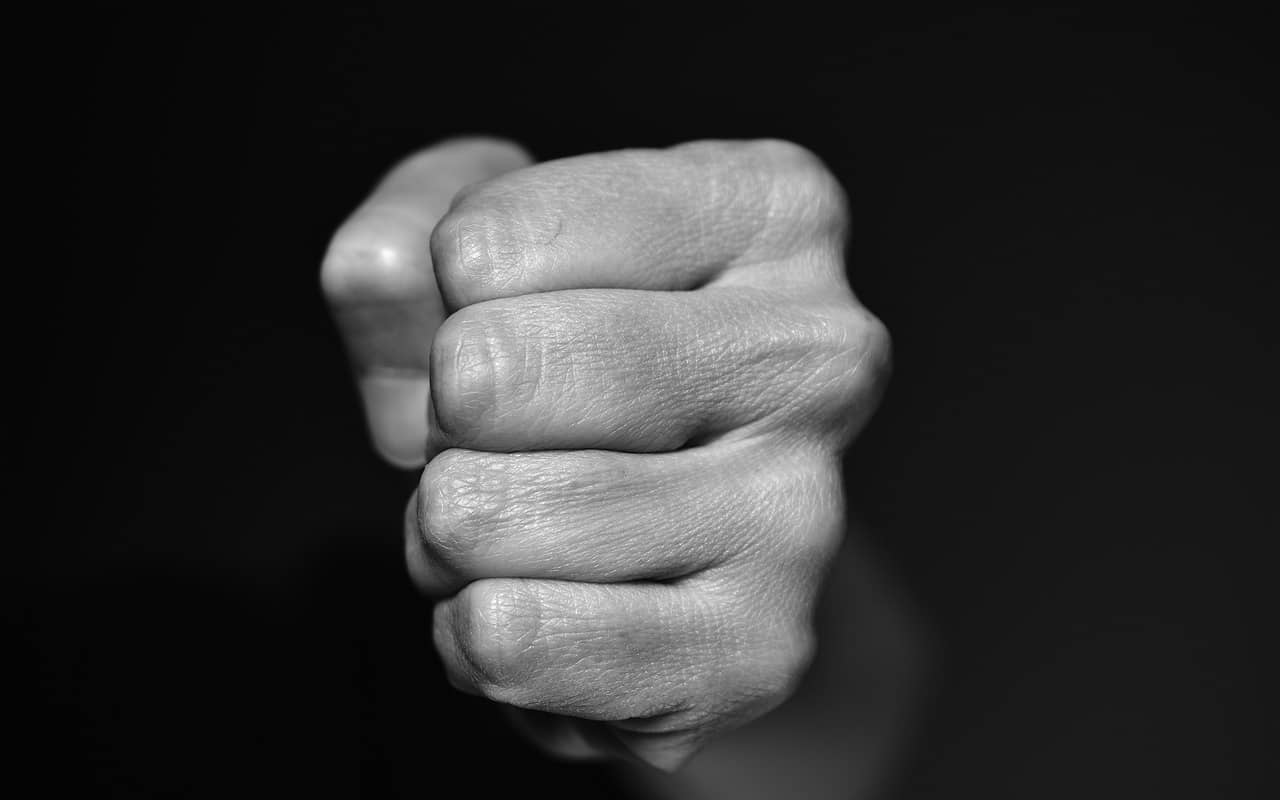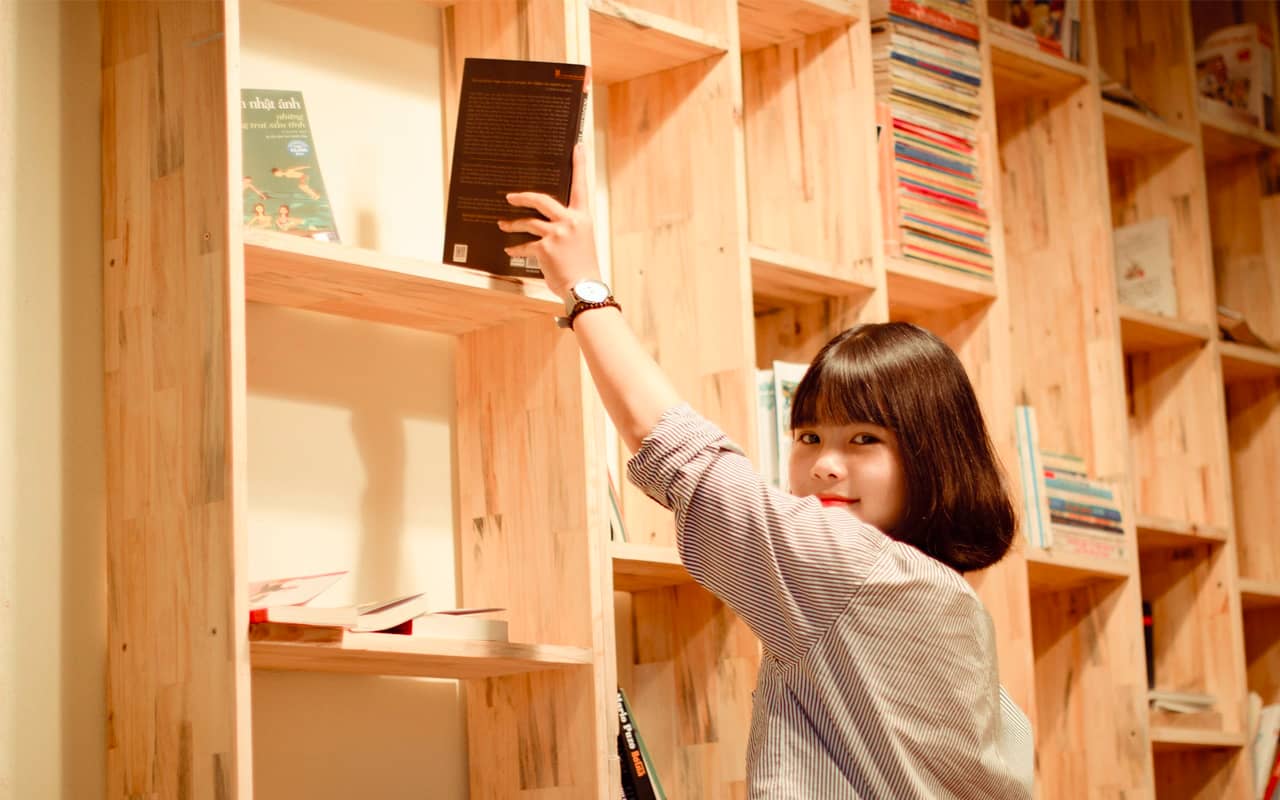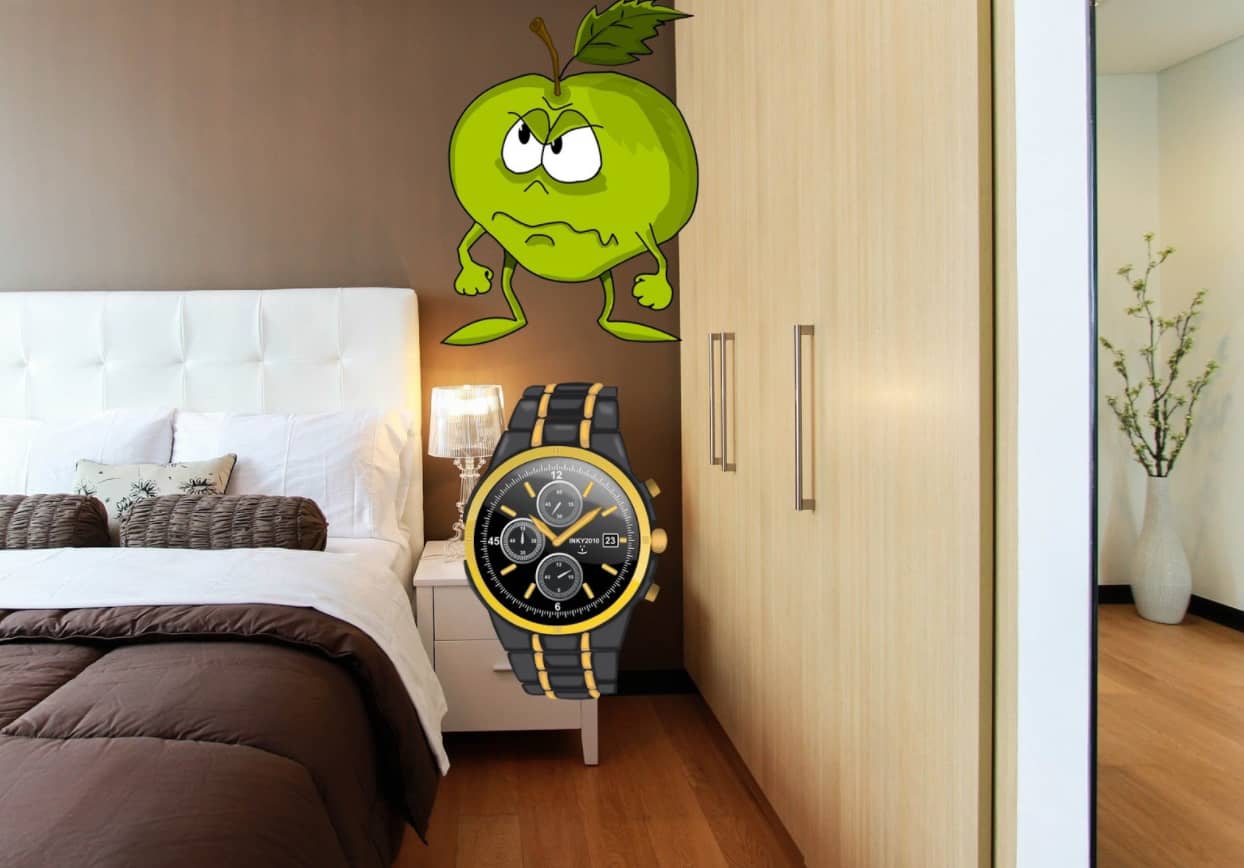Przejdź do trybu offline z Player FM !
How To Stop Losing Things: 6 Proven Tips
Archiwalne serie ("Kanał nieaktywny" status)
When?
This feed was archived on February 19, 2024 00:56 (
Why? Kanał nieaktywny status. Nasze serwery nie otrzymały odpowiedzi od kanału przez zbyt długi czas.
What now? You might be able to find a more up-to-date version using the search function. This series will no longer be checked for updates. If you believe this to be in error, please check if the publisher's feed link below is valid and contact support to request the feed be restored or if you have any other concerns about this.
Manage episode 293439601 series 1375140
 If you want to stop losing things, you’re probably tired of the standard advice.
If you want to stop losing things, you’re probably tired of the standard advice.
Sure, tips like getting more organized, reducing clutter and always placing things in a designated spot make sense.
But everyday life does not make sense. Sometimes we put things down and can’t remember where we put them. That’s just the way it goes.
So when it comes to handling this problem in a mature manner, what really works?
Well, if you’re sick of constantly losing things, you’re in luck.
On this page, we’ll go through some proven memory techniques you can use. They’ll help you remember where you placed things even when you cannot follow the standard advice.
How to Stop Misplacing Things
First, we need to start getting more specific.
Instead of “things,” we need to start using the actual names for what we want to stop losing.
https://www.youtube.com/watch?v=kc23Qm7V4B4
As a simple exercise that will help give your memory a workout, jot down the kinds of things you lose. I suggest you use a journal and be as specific as possible. List:
- The types of objects you misplace
- What times of days you tend to lost things
- Where you wind up finding them
- Any other behavioral observations
This exercise may feel hard, but please give it a try. It will almost certainly give you a solid foundation for solving this problem.
Now let’s move on to our first major tip. Here are the steps I recommend any time you’ve lost something and need to find it as quickly as possible.
Then, once these steps have helped you locate the missing object, make sure to journal each of the points above. Doing so will help with some neurological rewiring that will then reduce the amount of times you lose your precious belongings.
One: Say Names And Locations Aloud
If you have to set your keys down, say aloud, “keys on the counter.”
This will reinforce the action and help your brain label both the object and the location.
If you tend to forget whether or not you locked the door, saying aloud “locked” will help. It’s so much easier to remember what you’ve said aloud compared to what you’ve done physically.
Rest assured, there’s no shame in this. I’m a memory expert and I say “locked, locked, locked” in my mind almost every time I go out. It eliminates the worry that I might have forgotten to do so.
After I say “locked, locked, locked,” I usually make a point to replay the mental image of using my keys to secure the door. I also mentally repeat the phrase.
I know that forgetting if you locked the door seems like a different issue than misplacing your reading glasses. But leaving your home is a procedural memory and those too can get lost as easily as objects.
Two: Make A Fist
Let’s say you set your glasses down on a table.
Rather than simply walk away, close your fist as if you still have your glasses in your hand.
You can combine this technique with saying the object and the location as you walk away. For example, you can quietly or silently in your mind state, “I have left my glasses down on the table.”

This physical sensation of closing your fist while naming the action will help you carry the location-based memory with you. Later, you can think back to your fist and where you made this gesture. This action will help lead you back to the location where you left your glasses.
I suggest you squeeze vigorously. Don’t make this a passive action. Put some drive into it.
Also, if you’re leaving one room to go find scissors and don’t want to forget before you reach the kitchen, make a fist. By pretending you’ve got the scissors in your hand before leaving the room, you’ll remember what you were seeking.
When we leave one room and forget what we were heading out for, we are essentially losing what is called a prospective memory. But by simply saying the location and the object out loud while making a fist, it’s much easier to hold on to that memory.
Three: Make Multi Sensory Associations
Next time you put your wallet down, imagine hearing a massive explosion – just as if you’d dropped a bomb.
Let your imagination soar by making it as loud as possible.
Include a visual flash of light. Feel the ground rumble. Think to yourself, my wallet just blew up the kitchen counter.
Add some emotions, like shock at the explosion.
Follow these simple steps and misplacing things will be difficult for you from now on.
Four: Use Rhymes
We’ve already talked about using names. But there are more ways we can use language to help us remember objects and their locations.
Let’s say you have difficulties finding important books on your shelves.
Instead of arranging everything alphabetically (which is not a bad idea), you can remember where books are like this:
My important bookie-wookie is next to Stephen King-a-ling.
Silly, right?
That’s exactly the point. It makes it easier to remember where you stuck that book you always keep misplacing.

Five: Learn The Major System And Pegword Method
People ask me all the time, Why do I keep losing things? I even lose my car at the shopping mall!
I would too if I didn’t use memory techniques.
Two of the most powerful for finding your vehicle in parking lots are:
Basically, they help you assign an image to each digit from 0-9 and to every letter of the alphabet.
Then, if you park in B4, you’ll be able to imagine a bee attacking a sailboat. Since “bee” starts with the letter ‘b’ and 4 looks a bit like a sailboat, remembering this location will be a breeze.
Just as imagining your wallet dropping like a bomb needs some multi sensory visualization, you want to enhance this kind of association.
When I use this technique, it’s not the bland idea of a bee attacking a sailboat. It’s a full-scale Hollywood movie with emotions, sounds, intensity and energy.
The trick is to spend a bit of time creating these systems and practicing them. Luckily, they’re easy, fun and provide incredible brain exercise. And when you add the multi sensory aspects, the location of your car leaps instantly to mind.
If you feel a little unusual doing this in the beginning, don’t stress about it. With a small amount of practice, creating associations like this will become second nature.
Six: Turn Your Home Into A Memory Palace
If you can assign a memorable image to a parking spot, you can do the same thing in your home.
Let’s say you’ve developed your skills with the pegword method. You can then assign a letter and object to each room.
Let’s say you call your bedroom “A” and imagine a grouchy apple lives in it. If you take your watch off in your bedroom, you can think about the grouchy apple complaining about it.

By combining the alphabet with the Memory Palace technique, you will never forget where you placed your items again.
Because the apple is your image for the bedroom, you’ll remember the location. After all, it’s memorably absurd for an apple to be grouchy about you leaving your watch on the bedside table.
If you assign ‘b’ to your living room with Batman, there are all kinds of possible ways to have him interact with your glasses, keys, wallet or anything else you want to remember as you set it down.
If you want to learn more about the Memory Palace technique, check out this free course:
There are many more ways to use your home to remember where you put things. That’s why I hope you’ll check it the free course or even the full Magnetic Memory Method Masterclass.
These Tips Will Prevent You From Saying, “I Always Lose Things”
You now know how to use associations to remember where you placed important objects. Simply by exploring these techniques consistently, you’ll develop the ability to remember where you put things.
The benefits of removing the problem of forgetting things from your life include:
- Saved time
- Reduced stress
- Improved memory
The more you practice these techniques, the stronger your memory will become.
Of course, the standard advice about reducing clutter and creating reminders for yourself still has its place. I personally developed the habit of putting my keys in the same place years ago and have never regretted it.
But because life can get incredibly hectic, your best bet is to become what Tony Buzan called a “Warrior of the Mind,” and make using association a habit. That way, if anything upsets your regular pattern, you’ll have a stronger memory that helps you track your way back to the location of your belongings.
As always, the best app on the planet is the software you’re running in your head. Please use it, and explore related topics, such as how to stop losing your train of thought and techniques for remembering precious memories about your life that may have faded.
And if I can help you further in any way, just post below and I’ll get back to you a.s.a.p.
Don’t worry – I haven’t missed (or lost) a comment yet! 🙂
488 odcinków
Archiwalne serie ("Kanał nieaktywny" status)
When?
This feed was archived on February 19, 2024 00:56 (
Why? Kanał nieaktywny status. Nasze serwery nie otrzymały odpowiedzi od kanału przez zbyt długi czas.
What now? You might be able to find a more up-to-date version using the search function. This series will no longer be checked for updates. If you believe this to be in error, please check if the publisher's feed link below is valid and contact support to request the feed be restored or if you have any other concerns about this.
Manage episode 293439601 series 1375140
 If you want to stop losing things, you’re probably tired of the standard advice.
If you want to stop losing things, you’re probably tired of the standard advice.
Sure, tips like getting more organized, reducing clutter and always placing things in a designated spot make sense.
But everyday life does not make sense. Sometimes we put things down and can’t remember where we put them. That’s just the way it goes.
So when it comes to handling this problem in a mature manner, what really works?
Well, if you’re sick of constantly losing things, you’re in luck.
On this page, we’ll go through some proven memory techniques you can use. They’ll help you remember where you placed things even when you cannot follow the standard advice.
How to Stop Misplacing Things
First, we need to start getting more specific.
Instead of “things,” we need to start using the actual names for what we want to stop losing.
https://www.youtube.com/watch?v=kc23Qm7V4B4
As a simple exercise that will help give your memory a workout, jot down the kinds of things you lose. I suggest you use a journal and be as specific as possible. List:
- The types of objects you misplace
- What times of days you tend to lost things
- Where you wind up finding them
- Any other behavioral observations
This exercise may feel hard, but please give it a try. It will almost certainly give you a solid foundation for solving this problem.
Now let’s move on to our first major tip. Here are the steps I recommend any time you’ve lost something and need to find it as quickly as possible.
Then, once these steps have helped you locate the missing object, make sure to journal each of the points above. Doing so will help with some neurological rewiring that will then reduce the amount of times you lose your precious belongings.
One: Say Names And Locations Aloud
If you have to set your keys down, say aloud, “keys on the counter.”
This will reinforce the action and help your brain label both the object and the location.
If you tend to forget whether or not you locked the door, saying aloud “locked” will help. It’s so much easier to remember what you’ve said aloud compared to what you’ve done physically.
Rest assured, there’s no shame in this. I’m a memory expert and I say “locked, locked, locked” in my mind almost every time I go out. It eliminates the worry that I might have forgotten to do so.
After I say “locked, locked, locked,” I usually make a point to replay the mental image of using my keys to secure the door. I also mentally repeat the phrase.
I know that forgetting if you locked the door seems like a different issue than misplacing your reading glasses. But leaving your home is a procedural memory and those too can get lost as easily as objects.
Two: Make A Fist
Let’s say you set your glasses down on a table.
Rather than simply walk away, close your fist as if you still have your glasses in your hand.
You can combine this technique with saying the object and the location as you walk away. For example, you can quietly or silently in your mind state, “I have left my glasses down on the table.”

This physical sensation of closing your fist while naming the action will help you carry the location-based memory with you. Later, you can think back to your fist and where you made this gesture. This action will help lead you back to the location where you left your glasses.
I suggest you squeeze vigorously. Don’t make this a passive action. Put some drive into it.
Also, if you’re leaving one room to go find scissors and don’t want to forget before you reach the kitchen, make a fist. By pretending you’ve got the scissors in your hand before leaving the room, you’ll remember what you were seeking.
When we leave one room and forget what we were heading out for, we are essentially losing what is called a prospective memory. But by simply saying the location and the object out loud while making a fist, it’s much easier to hold on to that memory.
Three: Make Multi Sensory Associations
Next time you put your wallet down, imagine hearing a massive explosion – just as if you’d dropped a bomb.
Let your imagination soar by making it as loud as possible.
Include a visual flash of light. Feel the ground rumble. Think to yourself, my wallet just blew up the kitchen counter.
Add some emotions, like shock at the explosion.
Follow these simple steps and misplacing things will be difficult for you from now on.
Four: Use Rhymes
We’ve already talked about using names. But there are more ways we can use language to help us remember objects and their locations.
Let’s say you have difficulties finding important books on your shelves.
Instead of arranging everything alphabetically (which is not a bad idea), you can remember where books are like this:
My important bookie-wookie is next to Stephen King-a-ling.
Silly, right?
That’s exactly the point. It makes it easier to remember where you stuck that book you always keep misplacing.

Five: Learn The Major System And Pegword Method
People ask me all the time, Why do I keep losing things? I even lose my car at the shopping mall!
I would too if I didn’t use memory techniques.
Two of the most powerful for finding your vehicle in parking lots are:
Basically, they help you assign an image to each digit from 0-9 and to every letter of the alphabet.
Then, if you park in B4, you’ll be able to imagine a bee attacking a sailboat. Since “bee” starts with the letter ‘b’ and 4 looks a bit like a sailboat, remembering this location will be a breeze.
Just as imagining your wallet dropping like a bomb needs some multi sensory visualization, you want to enhance this kind of association.
When I use this technique, it’s not the bland idea of a bee attacking a sailboat. It’s a full-scale Hollywood movie with emotions, sounds, intensity and energy.
The trick is to spend a bit of time creating these systems and practicing them. Luckily, they’re easy, fun and provide incredible brain exercise. And when you add the multi sensory aspects, the location of your car leaps instantly to mind.
If you feel a little unusual doing this in the beginning, don’t stress about it. With a small amount of practice, creating associations like this will become second nature.
Six: Turn Your Home Into A Memory Palace
If you can assign a memorable image to a parking spot, you can do the same thing in your home.
Let’s say you’ve developed your skills with the pegword method. You can then assign a letter and object to each room.
Let’s say you call your bedroom “A” and imagine a grouchy apple lives in it. If you take your watch off in your bedroom, you can think about the grouchy apple complaining about it.

By combining the alphabet with the Memory Palace technique, you will never forget where you placed your items again.
Because the apple is your image for the bedroom, you’ll remember the location. After all, it’s memorably absurd for an apple to be grouchy about you leaving your watch on the bedside table.
If you assign ‘b’ to your living room with Batman, there are all kinds of possible ways to have him interact with your glasses, keys, wallet or anything else you want to remember as you set it down.
If you want to learn more about the Memory Palace technique, check out this free course:
There are many more ways to use your home to remember where you put things. That’s why I hope you’ll check it the free course or even the full Magnetic Memory Method Masterclass.
These Tips Will Prevent You From Saying, “I Always Lose Things”
You now know how to use associations to remember where you placed important objects. Simply by exploring these techniques consistently, you’ll develop the ability to remember where you put things.
The benefits of removing the problem of forgetting things from your life include:
- Saved time
- Reduced stress
- Improved memory
The more you practice these techniques, the stronger your memory will become.
Of course, the standard advice about reducing clutter and creating reminders for yourself still has its place. I personally developed the habit of putting my keys in the same place years ago and have never regretted it.
But because life can get incredibly hectic, your best bet is to become what Tony Buzan called a “Warrior of the Mind,” and make using association a habit. That way, if anything upsets your regular pattern, you’ll have a stronger memory that helps you track your way back to the location of your belongings.
As always, the best app on the planet is the software you’re running in your head. Please use it, and explore related topics, such as how to stop losing your train of thought and techniques for remembering precious memories about your life that may have faded.
And if I can help you further in any way, just post below and I’ll get back to you a.s.a.p.
Don’t worry – I haven’t missed (or lost) a comment yet! 🙂
488 odcinków
Wszystkie odcinki
×Zapraszamy w Player FM
Odtwarzacz FM skanuje sieć w poszukiwaniu wysokiej jakości podcastów, abyś mógł się nią cieszyć już teraz. To najlepsza aplikacja do podcastów, działająca na Androidzie, iPhonie i Internecie. Zarejestruj się, aby zsynchronizować subskrypcje na różnych urządzeniach.





